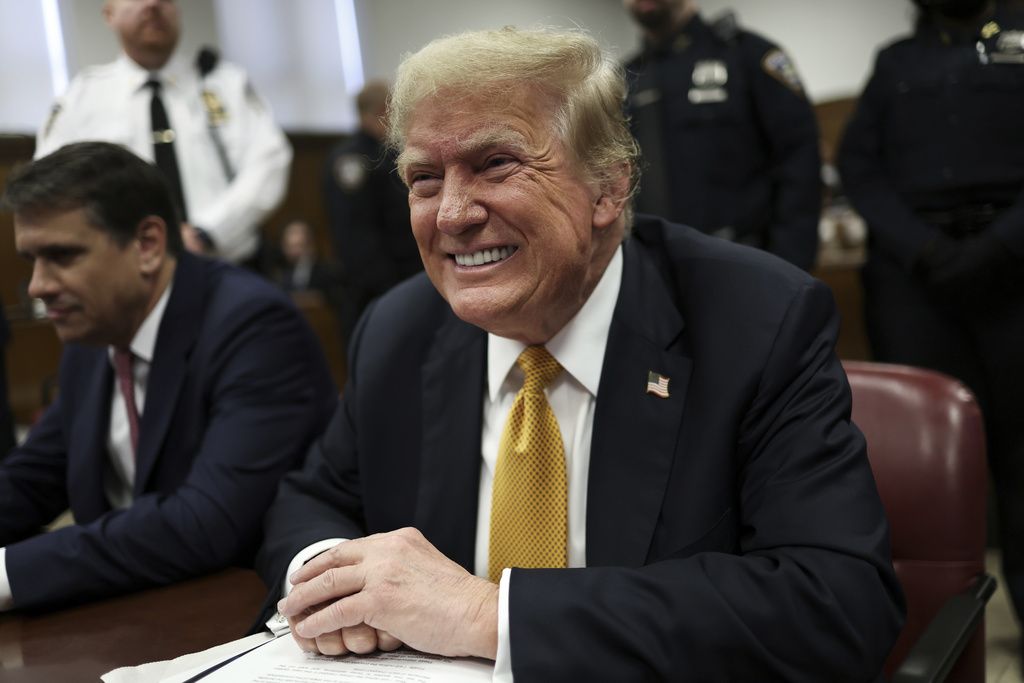

President-elect Donald Trump’s criminal case in Manhattan has a dimmer future following his election victory on Tuesday night, but it may not disappear as easily as his federal cases.
Trump’s anticipated return to the White House has thrown constitutional wrenches into the case that could weaken his forthcoming sentence or doom the case entirely, but a lot hinges on Judge Juan Merchan’s next moves.
Merchan is set to make key decisions in the case in the coming weeks after Trump was convicted by a jury this year of falsifying business records in the aftermath of his 2016 election.
Below is a look at how the case could unfold.
What comes next?
Trump is awaiting a ruling from Merchan on whether the Supreme Court’s recent presidential immunity decision has rendered Trump’s guilty verdict untenable.
Trump has argued the verdict should be thrown out, while Manhattan District Attorney Alvin Bragg disagrees. Merchan has said he plans to issue a decision on immunity by next Tuesday.
If the immunity ruling is unfavorable to Trump, the next step would be for Merchan to sentence Trump on Nov. 26. However, a source familiar with Trump’s legal plans told the Washington Examiner a sentencing hearing is unlikely to even occur, at least not any time before Trump’s term in the White House expires.
“I’m guessing we’ll run to Merchan with a motion to stay later this week,” the source said. “There are a lot of grounds to stay, including potentially a supremacy clause argument, because the president has statutory duties during the transition. My strong suspicion is that sentencing will not occur.”
Could the case be paused until Trump leaves office?
If Trump’s defense team successfully gets the case stayed, meaning a court agrees to pause it, that stay could last through the end of Trump’s term in office.
Bragg or the court could find it constitutionally unsound to wrap up a sitting president in court proceedings, a finding that would align with the Department of Justice’s policy of avoiding prosecuting presidents while they are in office.
The court proceedings could be revived upon Trump’s exit from the White House, but Trump’s legal team’s aggressive plans to escalate the case to the appellate court or even the Supreme Court at every possible turn make a revival a distant prospect at this stage.
Josh Blackman, an associate professor at South Texas College of Law, opined that Bragg may have no appetite to continue fighting the case if it is paused through the end of Trump’s time in office.
“The purpose of these cases was lawfare, right?” Blackman told the Washington Examiner. “It was to try to keep Trump out of the Oval Office. They failed, so it doesn’t serve any purpose.”
Could Trump still be sentenced?
Trump was convicted of 34 low-level felonies that carry a maximum four-year prison sentence, but sentencing guidelines have always suggested that Trump would face far less time behind bars than that or perhaps no jail time at all.
Now, in the event that the sentencing hearing does proceed, Merchan would face limitations on what penalties he could impose, according to New York-based attorney Karen Agnifilo, who once served in a top role in the Manhattan District Attorney’s Office.
“Anything that would interfere with his ability to serve as president would actually be unconstitutional and in violation of the supremacy clause,” Agnifilo told the Washington Examiner.
She added that a fine or community service could be possible but that probation or jail would not be options.
Trump’s attorneys would also have the ability to appeal the verdict once Merchan imposes a sentence, and an appellate court could indefinitely pause the implementation of the sentence at that point while higher courts decide whether the verdict should still stand.
CLICK HERE TO READ MORE FROM THE WASHINGTON EXAMINER
Could the case be moved to federal court?
Trump’s legal team has also made numerous attempts to remove the case from Bragg’s purview and place it in the federal court system. Trump cannot pardon himself of state charges, but he could be in a more favorable position to fight the case in federal court. Federal removal is, however, only one part of Trump’s defense strategy; the case could fizzle out through other avenues.
Trump’s latest federal removal pursuit is sitting before a New York appellate court, and Bragg has until January to submit his arguments for it to the court.





